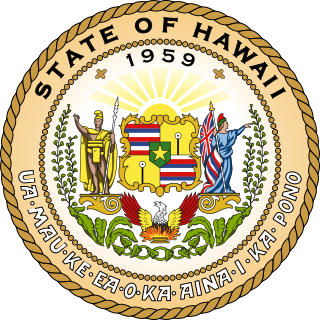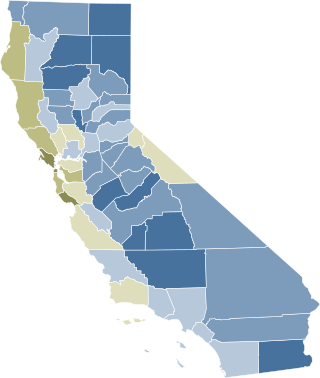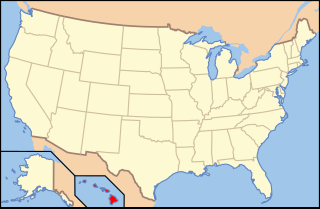Marriage equality refers to the legal recognition of union between two persons without distinction as to their sex. See same-sex marriage.
Contents
Marriage equality may also refer to:
Marriage equality refers to the legal recognition of union between two persons without distinction as to their sex. See same-sex marriage.
Marriage equality may also refer to:
Baker v. Vermont, 744 A.2d 864, was a lawsuit decided by Vermont Supreme Court on December 20, 1999. It was one of the first judicial affirmations of the right of same-sex couples to treatment equivalent to that afforded different-sex couples. The decision held that the state's prohibition on same-sex marriage denied rights granted by the Vermont Constitution. The court ordered the Vermont legislature to either allow same-sex marriages or implement an alternative legal mechanism according similar rights to same-sex couples.
The Federal Marriage Amendment (FMA), also referred to by proponents as the Marriage Protection Amendment, was a proposed amendment to the United States Constitution that would legally define marriage as a union of one man and one woman. The FMA would also prevent judicial extension of marriage rights to same-sex (gay) or other unmarried homosexual couples.

The availability of legally recognized same-sex marriage in the United States expanded from one state (Massachusetts) in 2004 to all fifty states in 2015 through various court rulings, state legislation, and direct popular votes. States each have separate marriage laws, which must adhere to rulings by the Supreme Court of the United States that recognize marriage as a fundamental right guaranteed by both the Due Process Clause and the Equal Protection Clause of the Fourteenth Amendment to the United States Constitution, as first established in the 1967 landmark civil rights case of Loving v. Virginia.
GLBTQ Legal Advocates & Defenders (GLAD) is a non-profit legal rights organization in the United States. The organization works to end discrimination based on sexual orientation, HIV status, and gender identity and expression. The organization primarily achieves this goal through litigation, advocacy, and education work in all areas of LGBT rights and the rights of people living with HIV. In addition, GLAD operates a legal information line, GLAD Answers, where LGBTQ & HIV+ residents of New England can receive attorney referrals and information about their rights. The organization changed its name to GLBTQ Legal Advocates & Defenders in February 2016.
Many laws in the history of the United States have addressed marriage and the rights of married people. Common themes addressed by these laws include polygamy, interracial marriage, divorce, and same-sex marriage.
Equal pay for equal work is the concept of labour rights that individuals in the same workplace be given equal pay. It is most commonly used in the context of sexual discrimination, in relation to the gender pay gap. Equal pay relates to the full range of payments and benefits, including basic pay, non-salary payments, bonuses and allowances. Some countries have moved faster than others in addressing equal pay.
Jordan Palmer is an American social activist, Kentucky politician, civil rights activist, entrepreneur, and the founder of the Kentucky Equality Federation. Palmer is from Hazard, Kentucky and is credited for having Kentucky Constitutional Amendment 1, being struck down by a Kentucky judge, pushing the first hate crime convictions under the Matthew Shepard and James Byrd Jr. Hate Crimes Prevention Act, and holding the first equality protests against a sitting governor and members of the Kentucky House of Representatives.

Constitutional Amendment 2 of 1998 amended the Constitution of Hawaii, granting the state legislature the power to prevent same-sex marriage from being conducted or recognized in Hawaii. Amendment 2 was the first constitutional amendment adopted in the United States that specifically targeted same-sex partnerships.

Same-sex marriage has been legal in Hawaii since December 2, 2013. The Hawaii State Legislature held a special session beginning on October 28, 2013, and passed the Hawaii Marriage Equality Act legalizing same-sex marriage. Governor Neil Abercrombie signed the legislation on November 13, and same-sex couples began marrying on December 2. Hawaii also allows both same-sex and opposite-sex couples to formalize their relationships legally in the form of civil unions and reciprocal beneficiary relationships. Civil unions provide the same rights, benefits, and obligations of marriage at the state level, while reciprocal beneficiary relationships provide a more limited set of rights.

Proposition 8, known informally as Prop 8, was a California ballot proposition and a state constitutional amendment intended to ban same-sex marriage; it passed in the November 2008 California state elections and was later overturned in court. The proposition was created by opponents of same-sex marriage in advance of the California Supreme Court's May 2008 appeal ruling, In re Marriage Cases, which followed the short-lived 2004 same-sex weddings controversy and found the previous ban on same-sex marriage unconstitutional. Proposition 8 was ultimately ruled unconstitutional by a federal court in 2010, although the court decision did not go into effect until June 26, 2013, following the conclusion of proponents' appeals.
Same-sex marriage has been legally recognized in Nevada since October 9, 2014, when a federal district court judge issued an injunction against Nevada's enforcement of its same-sex marriage ban, acting on order from the Ninth Circuit Court of Appeals. A unanimous three-judge panel of the Ninth Circuit had ruled two days earlier that the state's ban on same-sex marriage was unconstitutional. Same-sex marriage was previously banned by an amendment to the Constitution of Nevada adopted in 2002. The statutory and constitutional bans were repealed in 2017 and 2020, respectively.

The Respect for Marriage Act is a landmark United States federal law passed by the 117th United States Congress and signed into law by President Joe Biden. It repeals the Defense of Marriage Act (DOMA), requires the U.S. federal government and all U.S. states and territories to recognize the validity of same-sex and interracial civil marriages in the United States, and protects religious liberty. Its first version in 2009 was supported by former Republican U.S. Representative Bob Barr, the original sponsor of DOMA, and former President Bill Clinton, who signed DOMA in 1996. Iterations of the proposal were put forth in the 111th, 112th, 113th, 114th, and 117th Congresses.

Lesbian, gay, bisexual, and transgender (LGBT) persons in the U.S. state of Hawaii enjoy the same rights as non-LGBT people. Same-sex sexual activity has been legal since 1973; Hawaii being one of the first six states to legalize it. In 1993, a ruling by the Hawaiʻi Supreme Court made Hawaii the first state to consider legalizing same-sex marriage. Following the approval of the Hawaii Marriage Equality Act in November 2013, same-sex couples have been allowed to marry on the islands. Additionally, Hawaii law prohibits discrimination on the basis of both sexual orientation and gender identity, and the use of conversion therapy on minors has been banned since July 2018. Gay and lesbian couples enjoy the same rights, benefits and treatment as opposite-sex couples, including the right to marry and adopt.

In Hawaii, the LGBT laws have been evolving for the past hundred years. In the pre-19th century, the influence of Polynesian culture led to a more open-minded state. After the first Christian missionaries began arriving in Hawaii, strict sodomy laws were enacted. Territory v. Bell (1958) was the last sodomy case argued in Hawaii. After the turn of the 20th century, LGBT issues began being taken to and decided by the Supreme Court. In 2013, Hawaii voted in favor of gay marriage, and marriage licenses began to be issued to LGBT couples.
This article contains a timeline of significant events regarding same-sex marriage in the United States. On June 26, 2015, the landmark US Supreme Court decision in Obergefell v. Hodges effectively ended restrictions on same-sex marriage in the United States.

The Marriage Equality Act 2013 was an act of parliament of the Australian Capital Territory Legislative Assembly that was intended to legalise same-sex marriage in the Australian Capital Territory (ACT). It was first presented to the ACT Legislative Assembly on 19 September 2013 by the ACT Attorney-General, Simon Corbell. The law intended to build on the existing recognition of same-sex unions in the Australian Capital Territory, which included recognition of de facto partners, civil partnerships and same-sex-only civil unions. The act was passed in the Legislative Assembly on 22 October 2013. It came into operation on 7 November although wedding ceremonies under the provisions of the Act did not occur until 7 December 2013.

The Hawaii Marriage Equality Act of 2013 is legislation passed by the Hawaii State Legislature as Senate Bill 1 (SB1) and signed by Governor Neil Abercrombie which legalized same-sex marriage in the U.S. state of Hawaii. Prior to the bill's enactment, same-sex couples in the state of Hawaii were allowed to form civil unions or reciprocal beneficiary relationships ; however, civil unions are both legally limited to civil officials in their performance and unrecognized by the federal government, and RBRs are even more limited by the rights and privileges accorded.
In the United States, the history of same-sex marriage dates from the early 1940s, when the first lawsuits seeking legal recognition of same-sex relationships brought the question of civil marriage rights and benefits for same-sex couples to public attention though they proved unsuccessful. However marriage wasn't a request for the LGBTQ movement until the Second National March on Washington for Lesbian and Gay Rights in Washington (1987). The subject became increasingly prominent in U.S. politics following the 1993 Hawaii Supreme Court decision in Baehr v. Miike that suggested the possibility that the state's prohibition might be unconstitutional. That decision was met by actions at both the federal and state level to restrict marriage to male-female couples, notably the enactment at the federal level of the Defense of Marriage Act.